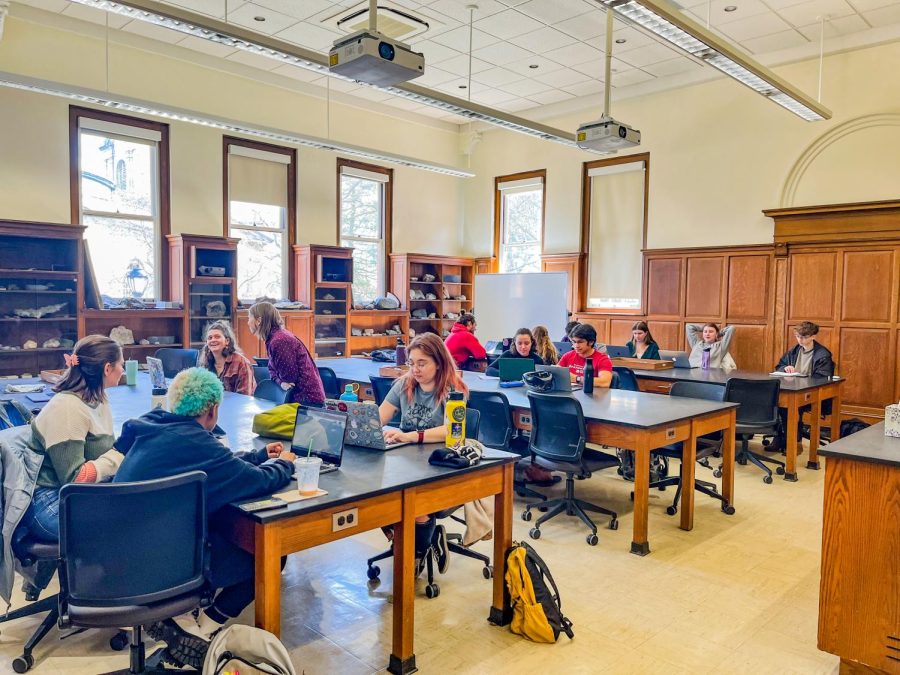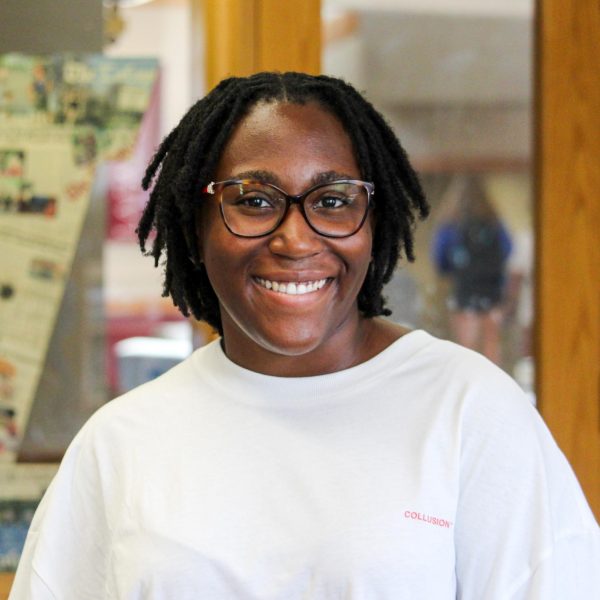Students in environmental studies professor Chrissy Hall’s class on climate change are taking the next few weeks to make a life change.
Whether it’s going vegetarian, limiting electricity use or attempting to be zero waste, Hall’s students are getting firsthand experience of the challenges that come with living a more environmentally friendly lifestyle.
Although making a lifestyle change for a course sounds extreme, Professor Hall’s class has been building up to it.
“Overall, the class is designed to be an interdisciplinary look at climate change and the ways that we address it,” Hall said. “So we started out towards the beginning of the course thinking about the science behind climate change … and we moved into thinking about how climate has changed in Earth’s history before there were humans or before there was sort of society in the way we think about it today.”
“Now we’re starting to get into some more politics and mitigation and how we talk about science and climate science to different audiences,” Hall continued.
Members of the class choose from five main topics and have three weeks to gradually incorporate the change into their daily lives.
While students also had the option to come up with their own sustainable life change, Bernadette Russo ’24, who is currently taking the class, found that the most popular choices concerned electricity use and limiting meat consumption.
“So for today, I’m a vegetarian, I try to turn off the lights, try to reduce my usage of the sink and I try to turn off the AC, which is hard because it’s really hot in my room, but I do it anyway,” Russo said.
“I [also] try to not create any waste, which is really difficult,” Russo added. “I was in the bathroom the other day and instead of using paper towels I air-dried my hands and spun them everywhere.”
Hall, who has been doing this project for about two semesters, is no stranger to the unique ways that her students have attempted to stick to their goals. While planning out grocery trips ahead of time to limit one’s amount of pre-packaged snacks or trying out vegetarian options at a dining hall might be more common approaches, others have come up with some out-of-the-box ways of staying on track.
“We had a student today who was talking about when it snowed and he got a bunch of snow and used that to turn off his small refrigerator for a little while. It was basically like a cooler with the snow, which I thought was very clever,” Hall said.
Despite the inconvenience that comes with trying to remember to bring a sustainable water bottle to class every day or going without air conditioning, Russo has found the project to be a uniquely enlightening experience.
“I think that this project has been really eye-opening for me, and I think that people should do this even if they aren’t taking a class for it. You just have to have the right mindset about it and kind of think ahead,” Russo said. “So far it’s been a really rewarding experience and I’m learning a lot.”
Culture Editor Bernadette Russo ’24 did not contribute writing or reporting.























































































































